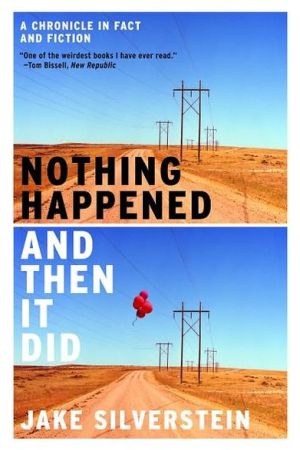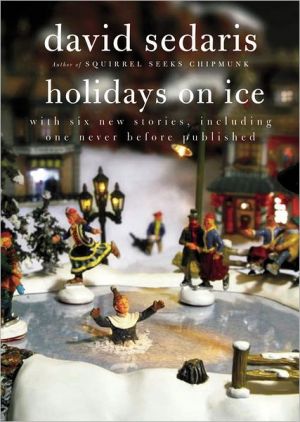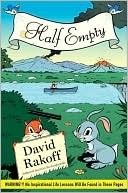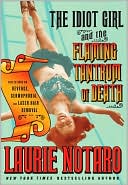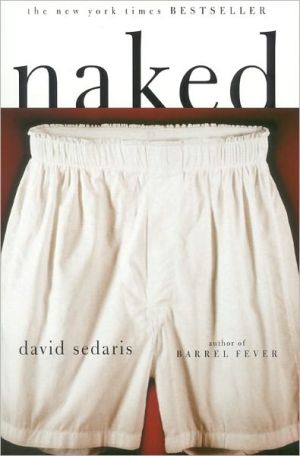Nothing Happened and Then It Did: A Chronicle in Fact and Fiction
Fact and fiction vie to tell the story of a young journalist bedeviled by the devil and seeking greater truth.\ The timing couldn’t be better—as scandals erupt over journalists and memoirists who’ve cooked their books—for a work that explores our difficulty in separating fact and fiction, while explicitly demonstrating how they differ and what they share.\ In prose so fine and wry it makes the back of your neck prickle, Jake Silverstein narrates a journey he undertook through the American...
Search in google:
Fact and fiction vie to tell the story of a young journalist bedeviled by the devil and seeking greater truth.Harper's Magazine - Benjamin MoserThe road novel—or the road half-novel—has rarely been funnier or more appealing than it is in Jake Silverstein's Nothing Happened and Then It Did. Half-novel, because at the beginning of the book we learn that the chapters alternate between fact and fiction…but the distinction ceases to matter as one is swept into this account of postcollege purposelessness.
\ Benjamin MoserThe road novel—or the road half-novel—has rarely been funnier or more appealing than it is in Jake Silverstein's Nothing Happened and Then It Did. Half-novel, because at the beginning of the book we learn that the chapters alternate between fact and fiction…but the distinction ceases to matter as one is swept into this account of postcollege purposelessness.\ —Harper's Magazine\ \ \ \ \ Publishers WeeklySilverstein dips between fact and fiction in his debut, ostensibly to shed light on the distinction between the two, and while some of the individual pieces—predominantly the nonfiction—are accomplished, the overarching mission remains unaccomplished. This collection starts on a solid non-fiction note as Silverstein arrives in a small west Texas town and stumbles upon clues to the unsolved 1914 disappearance of writer Ambrose Pierce. His search leads him on a wild goose chase, and the descriptions of a laughing devil inhabiting the Texas desert are among the most evocative in the book. Other highlights include his involvement in a too-good-to-be-true poetry contest, and the colorful characters he meets along the way. A piece on covering a legendary Mexican car race, meanwhile, bogs down in the details. The fiction doesn’t really go anywhere, with the exception of a story involving the search for lost treasure along the Gulf of Mexico. Silverstein writes with admirable economy, and some of the nonfiction demonstrates great potential, but this uneven effort’s blend of fact and fiction is more indecisive than incisive. (Apr.)\ \ \ Kirkus ReviewsA frustrated journalist goes where nothing happens, theorizing that when something does, he'll be there to get the scoop, in this Quixotic quest for the meaning of truth and untruth. Bored with covering city-council and school-board meetings for the west Texas Big Bend Sentinel, he investigates local lore like the mysterious disappearance of Ambrose Bierce and the devil's alleged residence in an area cave. With the possibility of a feature in National Geographic, he quits the paper to concentrate full time on his big story: the drought. When work on the story founders, he takes a temporary job as a driver for a New Yorker photographer assigned to take a single photograph that sums up the city where George W. Bush became an oilman. Chagrined to learn a New Yorker writer has scooped him on his drought story, he moves to New Orleans and writes poetry. An American Idol-style poetry contest lures him to Vegas, where he joins the ranks of hundreds of other bizarre and desperate wannabe poets. But semi-fictionalized Silverstein's journalistic yen won't die, and his credentials, however dubious, get him contracted to write about a treasure hunt based on a map purported to originate with Jean Lafitte, only to find himself literally blindfolded by the party's paranoid leader and told he's forbidden to publish anything about the trip. It's frustrations like these, along with his own journalistic shortcomings (advance research is not his strength) and a talent for either reproducing or inventing hilarious dialogue, that make these stories a self-deprecating, rollicking picaresque following the loose design of a real-life career that has included covering a bloody Mexican road race and the opening ofthe first McDonald's in Zacatecas. He ends with a Borgesian tale of a shorthand expert's search for his mysteriously vanished family, another oddly comical story that sticks to the theme of the murky lines where writing, reality, fact and fiction intersect. The juxtaposition of fact and fiction makes an engaging game of each piece, while Silverstein's eye for oblique detail and an accessible style in the tradition of adventurer-journalists like Samuel Clemens, Susan Orlean and Hunter S. Thompson brings him journalistic success where he claims to fail.\ \ \ \ \ Harper'sThe road novel—or the road half-novel—has rarely been funnier or more appealing than it is in Jake Silverstein’s Nothing Happened and Then It Did…[The reader] is swept into this account of post-college purposelessness…his quest to become a roving eyeball is so entertaining that it doesn’t matter what’s happening, or what’s not.\ \ \ \ \ Los Angeles TimesWhen Silverstein is front and center, making wry jokes, musing about the road and what journalism might mean, Nothing Happened and Then It Did has a thoughtful momentum.— Carolyn Kellogg\ \ \ \ \ The Huffington PostSilverstein's adventures and prose are first-rate. From searching for the grave of Ambrose Bierce in West Texas (fact), to a treasure hunt in the Louisiana bayou (fiction), the memoir traces five years in the author's life when he moved across the American Southwest and Mexico hoping to find a story worth selling that would launch his journalism career.\ \ \ \ \ The New Republic[O]ne of the weirdest books I have ever read…[Silverstein’s] adventures, real or fictional, are at their worst highly amusing and at their best marvels of droll virtuosity…[A] greatly entertaining and extremely funny book.— Tom Bissell\ \
